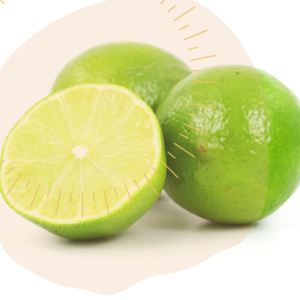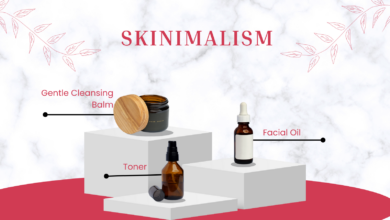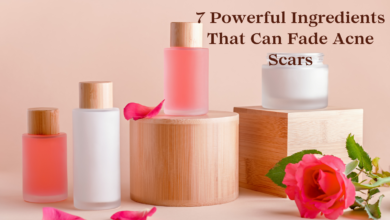
One question that pops up as you age, especially as a woman, is How to manage pigmentation and dark spots. This skincare problem arises due to age, hormones or hormonal imbalance, health issues, etc.
If you buy something through the links/banners here, we may earn an affiliate commission at no extra cost. Thank you
How do you manage Pigmentations and dark spots naturally? Pigmentation might look harmless, but it is not as innocuous as it appears. It can also result from underlying medical conditions.

They are harmless when they occur due to age, sun exposure, negligence, and so on.
So, the first step to managing pigmentation and dark spots naturally or in any way you prefer is knowing the cause before applying any remedy.
The good news is that if you have Pigmentation or black spots on your skin due to acne, natural factors like age, or negligence, there are ways to manage them and make them fade away.
You do not need to use an extreme method to remove them.
What is Pigmentation?
Pigmentation is any discoloration where you develop darker patches on your skin.
This is caused by excess melanin, which results in pigmentation or hyperpigmentation when it forms a deposit on the skin.
Types of Pigmentation
Age Spots: This is like flat tan or black spots on the skin as a result of age.
Melasma or Chloasma: This is a condition in which brown or dark patches appear on large areas.the skin. It is usually due to hormonal changes like pregnancy. These hormones may trigger the production of melanin and cause darkening of the skin.
Due to sun exposure, freckles are tiny dots on your face and shoulder.
Sunburn: This is the skin’s reaction to too much exposure to sunlight, causing skin redness, itching, and peeling. It is a radiation burn to the skin.
What Causes Dark Spots and Pigmentation?
UV rays are the biggest reason for pigmentation.
Other causes are:
- Skin damage as a result of aging
- Hormonal changes during pregnancy
- Skin rashes
- Skin infections like acne
- Birthmarks
- Medical conditions
- Certain medications and some chemotherapy drugs can cause hyperpigmentation as well.
- Also, hormonal changes during pregnancy can affect melanin production.
How Can I Lighten My Pigmentation Naturally?
Although natural remedies might not completely obliterate pigmentation. They can make them less apparent.
You cannot eliminate them in a day or couple of weeks; they take time to work. But you will eventually see a difference.
Always consult your physician before trying any alternative home remedy, especially if your symptoms could result from underlying health conditions.
Apple Cider Vinegar: Mix a tablespoon of ACV and water (equal parts) in a small bowl. Apply the mixture all over the affected areas with a cotton ball. Leave it until it dries completely, then wash off with lukewarm water. Repeat twice daily.
Lemon: Lemon is a natural bleaching agent with skin-lightening properties. Be careful if you have sensitive skin, and test your upper arm before using it. Use sunscreen afterward because lemon can also make your skin sensitive to sunlight.

How to use Lemon: Take one tablespoon of lemon juice (diluted) with a teaspoon of organic honey. Apply on the affected areas. And rinse off with lukewarm water after 15-20 minutes.
Red Onion: Red onion skin contains skin-whitening properties. Rub a slice of red onion on the affected area. Rinse off with lukewarm water after 20 minutes. (Read further on benefits or red onion here)
Milk: The lactic acid in milk contains brightening and whitening agents. Apply dress milk to the dark areas with a cotton swab. Let it dry, then rinse with lukewarm water.
Tomatoes: Tomatoes contain lycopene, which can lighten the long-term effects of photodamage. (Read more about using tomatoes to brighten your skin tone here.)
Slice a tomato and rub it on the spots. Let it dry, and rinse it off with lukewarm water. You can blend and strain tomato juice and rub the affected areas with a cotton swab.
Aloe Vera: In a bowl, mix 2 tablespoons of fresh aloe vera gel with 1 teaspoon of honey. Let the mixture sit for 10 minutes. Apply it to the affected area. Wash off when it is scorched.
Black Tea: Black tea is said to have a skin-whitening effect. Boil a teaspoon of tea leaves in water. When it is cool, strain it and apply it on the dark areas with a cotton swab.
Orange Peel: Extract from orange peels can help fade dark spots and brighten your skin.

Dry orange peels and grind them. Mix with a teaspoon of diluted lemon juice and honey. Use as a face mask three times a week.
Potatoes: Potatoes contain azelaic acid, which may help reduce or fade blemishes and spots caused by acne. Slice a potato and rub it on the spots once daily. Wash it off when it dries.
How To Prevent Pigmentation and Dark Spots
You need to know the causes of your pigmentation before you can determine how to treat it. Treating the problems first would reduce the pigmentation if it results from underlying health issues.
The first step to preventing pigmentation is to take good care of your skin by limiting sun exposure.
Using sun protection every day: Sun exposure triggers an overproduction of melanin, which can cause sun spots, age spots, dark patches, and hyperpigmentation.
Using sunscreen of at least an SPF 30 can block up to 97 percent of the sun’s UVB rays.
Wear hats that block sunlight.
Eat healthy meals and a balanced diet. (Read more on how to eat your way to a healthy lifestyle here)
Lastly and most straightforward, Drink water. There are lots of benefits to drinking water. Hydrating might give you a more even skin tone and less discoloration. It will also ensure healthy-looking skin and help fight off dehydration.
Sharing is caring. Spread some love by sharing this post. Remember to follow us on Instagram and Facebook, or subscribe to our newsletter to stay current and unlock the secrets of a beautiful you.



